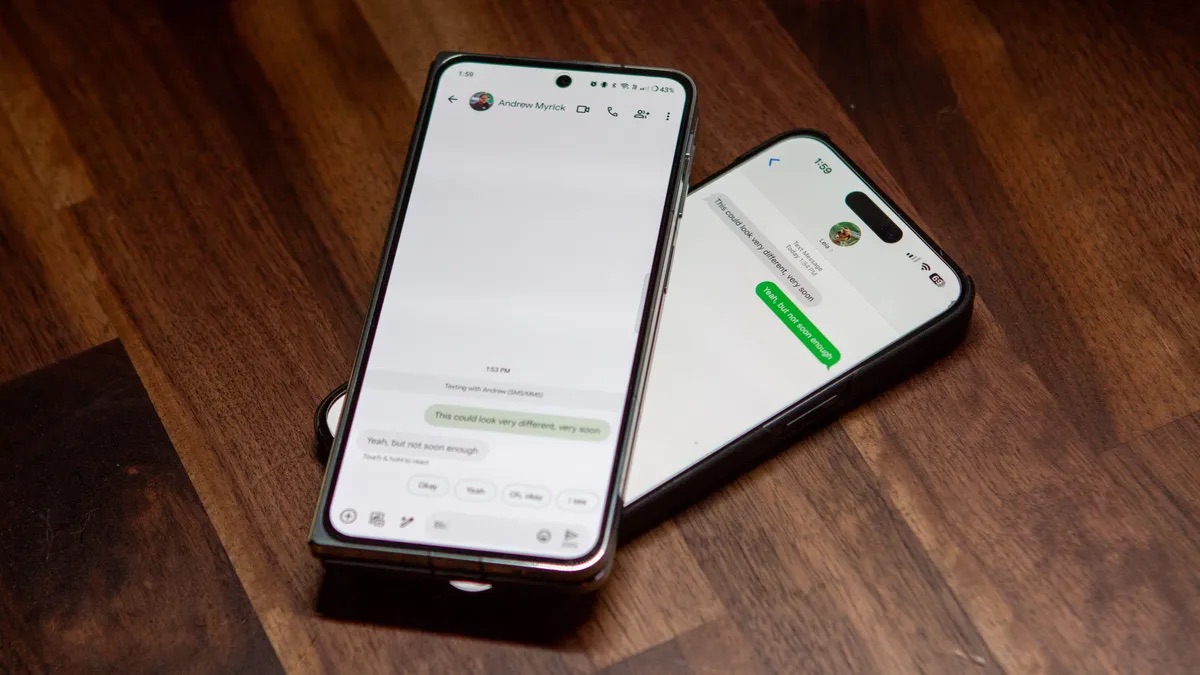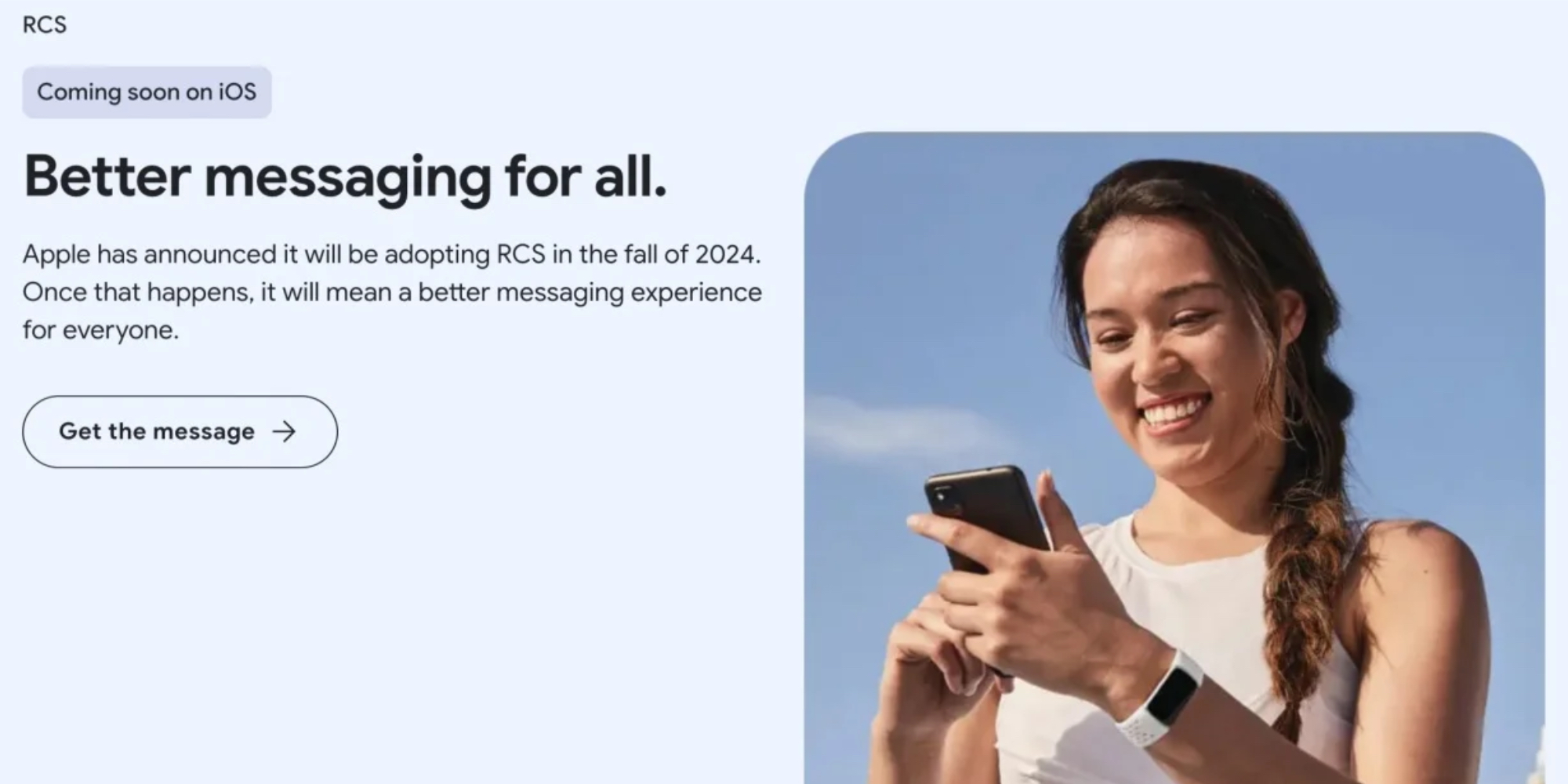Google may have accidentally revealed when Apple will add RCS to iPhones
Google shared, then pulled back, a section in the Google Messages landing page after leaking Apple's timeline for RCS.

What you need to know
- Google added a section to the landing page for Google Messages that revealed when Apple will support RCS messaging on the iPhone.
- Later, Google pulled the section from that landing page, but the information remains available through screenshots and the Wayback Machine.
- While Apple announced that RCS messaging would come to the iPhone later this year, Google clarified in its promotional material that it will specifically be available in Fall 2024.
Google finally won its battle with Apple last year, as the Cupertino-based company agreed to support RCS messaging on the iPhone later this year. Now, Google appears to have leaked Apple's timeline for RCS availability in iOS. In a new landing page for Google Messages, the company shared that Apple "will be adopting RCS in the fall of 2024." Hours later, this landing page has been completely scrubbed of references to this timeline.
In fact, the entire section that revealed Apple's plans to support RCS messaging this fall has been removed. In it, Google described RCS messaging by saying, "Hello hi-res, goodbye blur," referencing the improved quality of photos and videos shared over RCS compared to SMS or MMS. Clicking the See more features button opened up an expanded spotlight of RCS, where Google outlined Apple's timeline for supporting the messaging standard.
Here's what the section regarding Apple's upcoming support of RCS on the Google Messages landing page looked like before it was taken down:

Now, that entire section is gone on the very same Google Messages landing page. While the section was only live for a matter of hours, it was partially captured by the Wayback Machine. There were originally three main feature spotlights: customization, photomoji, and RCS. In the live version of the landing page, only the first two sections remain, with smaller sections for other features that remain below.
It appears Google may have inadvertently leaked Apple's timeline, but it isn't too surprising. Apple's initial timetable of "later next year," referring to late 2024, seemed to line up with the fall already. Since iOS 18 is set to launch in the fall of 2024, it was already likely that RCS message would be supported starting with that OS upgrade. Now, thanks to Google's lapse, it seems all but confirmed, although things can change now that the reference was taken down.
RCS messaging will make texting between iPhones and Android phones easier, leveraging higher-quality photos and videos, read receipts, typing indicators, better group chat support, and more.
Be an expert in 5 minutes
Get the latest news from Android Central, your trusted companion in the world of Android

Brady is a tech journalist for Android Central, with a focus on news, phones, tablets, audio, wearables, and software. He has spent the last three years reporting and commenting on all things related to consumer technology for various publications. Brady graduated from St. John's University with a bachelor's degree in journalism. His work has been published in XDA, Android Police, Tech Advisor, iMore, Screen Rant, and Android Headlines. When he isn't experimenting with the latest tech, you can find Brady running or watching Big East basketball.
You must confirm your public display name before commenting
Please logout and then login again, you will then be prompted to enter your display name.
